Outgoing Chief Constable Iain Livingstone. FOR FIVE YEARS and despite publicly aired views of former senior Police officers against his appointment – Scotland’s National Police service has been lawyer-led by a Chief Constable – who was once accused, then ‘cleared’ by a Tribunal composed of male Police colleagues – of FIVE allegations of serious sexual assault made against him by a female Police officer.
On 23 February 2023, just days after Nicola Sturgeon announced her resignation as First Minister on 15 February 2023 – Chief Constable Iain Livingstone announced his own resignation and intention to ‘retire’ from leading Police Scotland – with a lengthy departure date of August 2023.
However, in the weeks which followed the Chief Constable’s long goodbye to Scotland’s decimated national Police service – Mr Livingstone took the opportunity to brand Police Scotland as Institutionally discriminatory, institutionally sexist and instructionally racist.
What followed was a very scripted set of headlines involving public inquiries, SNP politicians praising the outgoing Chief Constable, and gangland representing lawyers seeking their own ego boosting headlines in what many came to realise was a carefully orchestrated exercise in press releases and organised spin.
However – Chief Constable Iain Livingstone was certainly not wrong in his accusations against his own Scottish National Police service.
Indeed, across five years of presiding over Police Scotland, the outgoing Chief Constable – who was branded unfit to lead Police Scotland by former Assistant Chief Constable Angela Wilson, and a host of public critics & campaigners – must shoulder some of the blame for a dysfunctional Police Service which – at low points – assisted the Lord Advocate & Crown Office in fitting up prosecutions against persons whose crimes did not exist – most notably the Administrators & Accountants of Rangers Football Club.
However, fitting up prosecutions on a £100 Million scale with the cooperation, orders even – of Scotland’s top law officers, top prosecutors and even with the evidenced involvement of the judiciary itself in the plot to lock up a few accountants for events which were mostly made-up – are but one entry in a long list of greed, avarice & corruption within Scotland’s National Police service and across key stakeholders in Scotland’s justice system – from the Crown Office to the Scottish Government itself.
But lets not kid ourselves everyone. We knew it all along, right?
The Scottish Government and it’s slavishly political, critic & media hostile – intensive Civil Servant-Special Adviser Policing group – were hell bent on control of almost every facet of Policing in Scotland and were grimly determined to ensure Scotland’s National Police Service drifted into the same chasm of control freakery, public relations and spin as the SNP Scottish Government live by each day and eek out their grim control over public life until the next week and the next scandal.
Few surprises there – as control freakery, PR and spin is so typical of the way the Scottish Government and every public organisation and regulator in Scotland operates – when faced with questions and scrutiny of the level of wrongdoing & dishonesty in whichever public authority is under the microscope that particular day.
To back up Iain Livingstone’s scripted admission of institutionally everything-wrong at his own five year grip on power Police Scotland, a series of senior officers were paraded on television to support the Chief Constable’s claims – with absolutely not one sounding believable in any of their responses.
And, to round off the increasingly diversionary campaign of ruining the reputation of Policing in Scotland to take the cameras and attention away from high profile political resignations and investigations into political funding – which appear to be more focussed on what they cannot prove rather than going after actual events and a rather complicated set of – lets call it “Heather Capital” type activities – the Chief Constable’s sexist, discriminatory & institutionally corrupt Police Service scandals were capped off with an arranged slew of new female officer appointments and the appointment of a female Chief Constable to replace Mr Livingstone.
If only it would be advantageous to publish the chat apps content of senior lawyers, civil servants and others on these few weeks of a dodgy Scottish National Police Service, and the dodgiest of dodgy Scottish Governments, ever.
Lets return to some of those issues in the headlines.
Non Disclosure Agreements at Police Scotland under Chief Constable Iain Livingstone – have seen millions of pounds in public cash paid out to victims of wrongdoing, corruption, sexism and misogyny during Livingstone’s five year grip on power at Scotland’s lawyer-led National Police Service – and millions of pounds more of public cash in the five years preceding Livingstone’s appointment as the preferred Scottish Government candidate of Chief Constable in 2018.
For years – cases of wrongdoing in policing – from the time of Scotland’s eight forces to the creation of Police Scotland by the SNP Scottish Government in 2014 – have been looked at by blog journalists.
The numbers are big, the pay-outs to victims even bigger, the wrongdoing, corruption, sexism, misogyny, vendetta witch-hunts of sources to journalists, pursuit of police officers who lodge legitimate grievances on issues relating to their service – and targeting of whistle-blowers has been – and remains to this day – off the scale.
It should not surprise readers that private law firms, solicitors, ‘leading’ members of the Faculty of Advocates & even some members of Scotland’s judiciary – have also collectively gained millions of pounds of public cash over the past decade in burying scandals for Police Scotland and forcing victims to sign Non Disclosure Agreements to prevent anyone talking to the media, public, their families and friends – or even their elected political representatives and the Scottish Parliament.
Readers can view earlier Freedom of Information disclosures obtained by blog journalists here Police Scotland – Non Disclosure Agreements FOI – 2019 which give some idea of the scale of pay-outs and a very limited understanding of the level of institutional wrongdoing at Police Scotland.
More than 20 victims of discrimination and wrongdoing who received financial compensation from Police Scotland were gagged from speaking publicly and the FOI material reveals Non-Disclosure Agreements (NDAs) were used in at least 21 cases in which pay-outs totalling £677,389 were made to police officers, civilian staff and members of the public.
At least ten police constables, an inspector, a sergeant and four civilian workers were found to have signed Non Disclosure Agreements, involving a variety of discrimination disputes on the grounds of sex, sexual orientation, disability and age.
Other Non Disclosure Agreements involving Police Scotland related to wrongful arrest, personal injury and unfair dismissal and a whistle-blower was required to sign an NDA.
In the figures which go up to the year 2019 – Scotland’s National Police service paid an additional £203,380 to cover victims’ legal fees – bringing the total cost to taxpayers to £880,769 over six years.
Initially – and as is routine with all Scottish Public Authorities – Police Scotland refused to identify the law firms which received public cash in relation to Non Disclosure Agreements. The data was only obtained after requests for FOI Reviews were lodged – naming the following law firms in figures: Clyde & Co solicitors £50,782.20, Morton Fraser Solicitors £72,162.56, Thorntons Solicitors £4,910.40.
And in an additional refusal by Police Scotland to identify law firms involved in Non Disclosure Agreements – again for figures up to 2019 – the same law firms were again identified in an FOI review disclosure – Morton Fraser Solicitors £22,208.80, Clyde & Co solicitors £41,460.01
Police Scotland’s key role in the malicious prosecution of the Rangers Administrators has been well documented on this blog PROSECUTION ADVOCATE: Conflicts of interest, failure to recuse & judge swapping in court – Rangers Admin malicious prosecution case illustrates why Scotland’s Prosecutors & Judiciary must be required to register, declare & publish all their interests – and publish all details of judges’ recusals from court hearings, and more widely in the media.
There also remains no further disclosure by Police Scotland into the allegations of five serious sexual assaults against the outgoing Chief Constable Iain Livingstone – information which Police Scotland refused to release to Freedom of Information requests by blog journalists in an article reported earlier here: TOP COP SECRETS: Transparency lacking at Police Scotland as spy scandal cops refuse to disclose files on complaints & historical sexual assault case details involving Deputy Chief Constable Iain Livingstone
Curiously, in the past year – several media publications published articles identifying outgoing Chief Constable Iain Livingstone as a “Frontrunner” for the positions of Commissioner of the Metropolitan Police Service for London , and “Frontrunner” for the post of Director of the UK National Crime Agency.
As readers will be well aware – both positions were filled by other candidates.
Interestingly and perhaps coincidentally – INTERPOL – the International Police Agency recently announced – apparently after much lobbying – the annual Interpol General Assembly is to be held next year in Glasgow, 2024.
The choice, which would be as odd as a group of environmental campaigners choosing to hold their gathering in the middle of an oil refinery – is coincidentally slated for the same year to which candidates for the 2025 Interpol Presidency will begin lobbying for their chance to follow several well known – and even some later jailed figures – to become the new Interpol President in 2025.
A previous example of Interpol Presidency candidates cite the following:
The Minister for Africa (Harriett Baldwin)
Interpol is currently holding its general assembly in Dubai, and a UK delegation, led by Lynne Owens, the director general of the National Crime Agency, is there at the moment. Interpol is electing a new president at the general assembly after former Interpol president and Chinese Vice-Minister of Public Security, Meng Hongwei, resigned from the position on Sunday 7 October after Chinese authorities confirmed that he had been detained and is being investigated on anti-corruption charges.
Two candidates have formally declared for the post and remain in the running as candidates. They are current acting president South Korean Kim Jong Yang and Russian vice-president—one of four vice-presidents—Alexander Prokopchuk. Members of Interpol at the general assembly will vote on the next president on Wednesday. We do not speculate on the outcome of the election, but the UK supports the candidacy of acting president Kim Jong Yang.
Can the Minister confirm that the British Government are doing all they can to campaign against the candidacy of Mr Prokopchuk? Will she confirm that, until recently, he was head of the central bureau in Russia and was directly responsible for the issuing of red notices, which have been abused and used against opponents of the Putin regime—such as Mr Bill Browder, the proponent of the Magnitsky sanctions? Does she not agree that if this Russian gentleman were to become head of Interpol, it would be an absolute insult to the victims of the Salisbury incident?
Will the Minister explain how the Government intend to pursue their own pursuit of red notices in Russia with that gentleman in this post? Does she not accept that, if this gentleman were to succeed in his election, this would be a massive propaganda victory for the Putin regime, just ahead of a vote in the European Union on fresh sanctions? Would it, in effect, not amount to accepting that Interpol has become a branch of the Russian mafia? I use my words carefully when I say that. Finally, does this not underline the absolute folly of undermining in any way Europol at a time when Interpol is becoming totally dysfunctional and potentially corrupted?
The right hon. Gentleman raises a number of points. The central point is to clarify for the House the role of the secretary general of Interpol, who, of course, is the German Jürgen Stock. He has the executive role of day-to-day responsibility for the conduct of Interpol, and the UK confirms that it has a very good working relationship with him.
The right hon. Gentleman also raises the question about the candidacy of the current vice-president of the organisation. The UK, as I said in my opening remarks, will be supporting the candidacy of the acting vice-president, Kim Yong Yang. We always seek to endorse candidates who have a history of observing standards of international behaviour.
With regard to the point that the right hon. Gentleman makes about the potential for misuse of Interpol, red notices are a very important point. He will be aware of the systems that are in place to protect individuals’ rights and, indeed, of article 3 of the Interpol constitution, which forbids any organisation to undertake any intervention or activities of a political, military, religious or racial character. Of course, there need to be safeguards, and this Government take any misuse of Interpol notices very, very seriously.
Interestingly, the lobbying – both at National UK level and in Scotland – for a UK/Scotland candidate to ensnare, be ‘elected to’ or assume the Interpol 2025 Presidency – is highly reminiscent of recent attempts to place certain Scots figures in policing positions outside of Scotland – none of which appear to have succeeded given these individuals pasts.
The lobbying between administrations resorted to embittered strings of emails and Chat app platform communications, including claims several detailed reports in newspapers of officers pasts “had been withdrawn and therefore should be discounted in considering applications” and that “a segment in a television interview was misinformed and contained patently false information”.
The exchanges between advisers, media communications officers & administrations on lobbying attempts, currently cannot be published for legal reasons – however the attempts by some within government, at Scotland & UK level to engineer candidates for jobs without serious interviews, and deploy comms officers, even politicians to brief against the media in what became an increasingly bitter recruitment process and ultimately concluded in all parties engaging in infighting – are certainly of public interest in terms of who is appointed to which role in the UK, and why.
Historically, when it comes to any form of transparency and accountability for Police Scotland and policing organisation in Scotland – every effort appears to be expended to ensure secrecy on all fronts remains the case as this blog has previously reported: FOI PROBE: Holyrood Committee hear Scottish Information Commissioner backed off promise to bring Freedom of Information to Scottish Police Federation – even after Info. Tsar knew England & Wales Police Fed. already complied with FOI legislation
And finally – Three sourced tips in relation to stories being looked into.
An audio file submitted to a number of journalists reveals a recently retired policing figure and frequent user of sauna shops – boasted of holding information in relation to politicians and a financial scandal relating to cash and goods – to which the existence of this information was used to gain political lobbying and favours. A crime journalist confirmed the identity of persons in the audio.
An opportunity for that person or others with knowledge of this matter exists to contact journalists and answer questions on why this policing figure’s organisation felt it could play politics and gain favours – in relation to information clearly accumulated as a result of investigations – and why ageing, named former politicians were paid to lobby for, and attack journalists, critics – on behalf of this policing organisation.
Long running enquiries into court cases and complaints investigations revealed the use of Scotland based Private Investigator firms recruiting former Police Officers to utilise in-person surveillance on litigants, solicitors and journalists. Certain of these cases saw persons working for PI firms gaining entry to offices and litigants homes, images of which were recorded on camera equipment. Blog journalists are open to hear explanations from these firms and any employees in relation to their activities.
A long running investigation of digital surveillance employed by organisations in Scotland – which began with the Emma Caldwell case – turned up evidence of a highly organised cyber-hacking ring – which appears to have involvement of former Police Officers from a UK force other than Scotland, England & Wales which continues to snoop on newsrooms and identified journalists, and others including what appear to be opposition politicians.
Emails between lawyers & identified former officers revealed these ex cops regularly offer their services to law firms and any organisation which will hire then. To put it bluntly, these former officers boast of their technical proficiency in defending against cyber-attacks and taking the surveillance and cyber war back to those who whichever entity or organisation perceive as an enemy.
One of the lawyers boasting to clients of how they can deploy ex Police professionals to hack their way through opposing clients and legal representation’s files – sits on committees formed by Scotland’s current top judge – making the link between the judiciary and this surveillance enterprise as clear as was the case in the Emma Caldwell case. If anyone wants to talk, get in touch.
Lastly – Chose your method of giving tips to journalists carefully. Major social media platforms owned by a variety of anti-transparency vested interests – are a no-go area as your Direct Messages and similar are often read before the intended journalists gain sight of it – as a Digital Media employee from a political party recently confirmed in lengthy chats with example communications provided to journos.
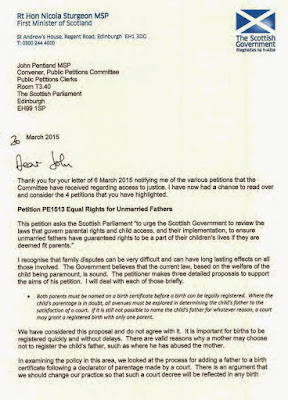
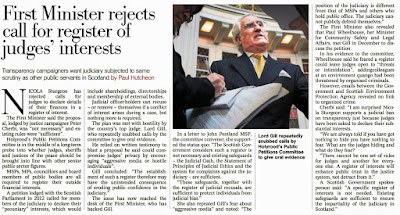




















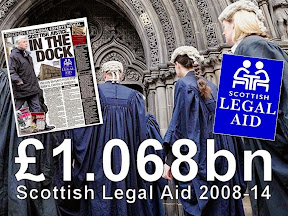















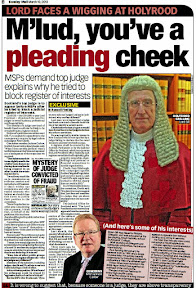
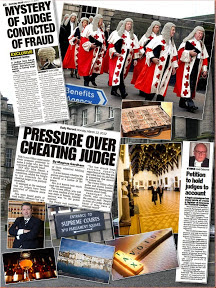
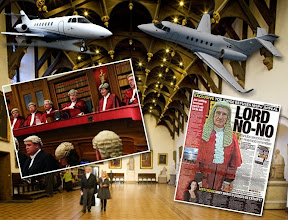


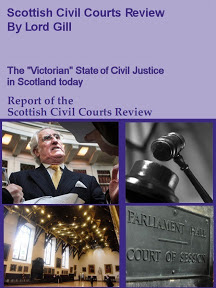
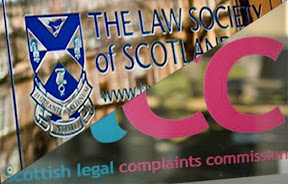




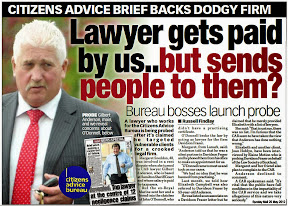



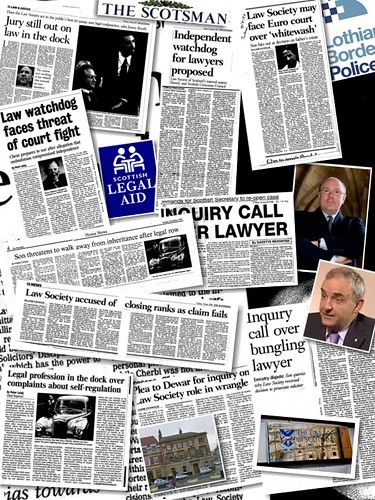




You must be logged in to post a comment.